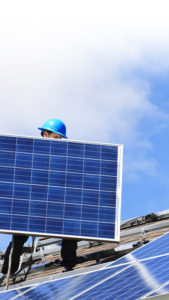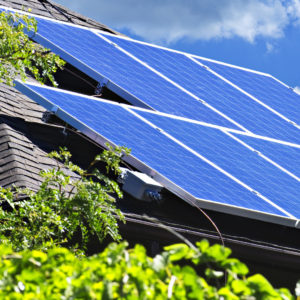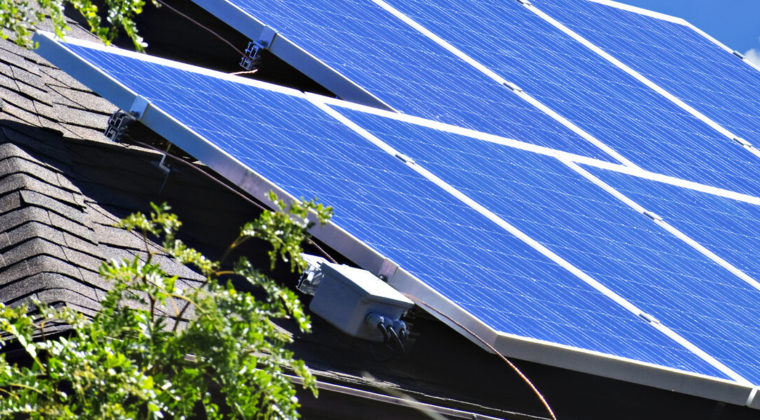Does Solar Increase Home Value?
When it comes to purchasing a residential solar system, potential solar buyers want to make sure the numbers make sense. We get questions that range from every angle:
• How much will solar cost?
• How much will it reduce my electricity bill?
• How many years will it take for solar savings to be greater than the overall cost?
• How large is the solar tax credit?
• How long will my panels last?
The list of questions goes on. At KP Solar, we encourage our prospective customers to ask questions so that they know exactly what solar will do for their month-to-month and long-term savings.

solar panels installation
One question that customers often overlook or even forget to ask is the long-term effect of solar on the value of their home and property—and the truth is it can have both a positive and negative effect. Before you go trusting online sources that claim your home’s value will immediately increase by 13% if you buy a solar system, give this post a read to understand all of the causes and effects of solar on property value.
When can solar increase my property value?
Solar becomes valuable when it is paid off and owned by the homeowners. Whether a homeowner has finished their loan payments or bought the panels with cash, debt-free homeowners can expect to increase the value of their home for several reasons.
• Firstly, they control their power and aren’t at the mercy of unfair, monopolized utility companies.
• Secondly, they have ownership of an asset that has a large fiscal value.
• Thirdly, they can store power through battery backups during power outages and at night.
So, the best way to increase your property value with solar is by having your panels pay off. A solar system can help add a futuristic touch and an added incentive to a potential buyer of avoiding one more utility.

Solar Power Installation
How much will the value of my property increase?
Several factors can contribute to the overall increase in value of a property because of a solar install.
The first and most important aspect is the size of the system. When it comes to solar, bigger is better for a couple of reasons. A bigger system not only signifies that a home doesn’t rely on utility providers, but in some cases, it can also generate excess power that can be sold back to utility companies for a fixed price. In other words, some states allow residential homeowners to make money from their solar panels.
The second factor that contributes to the value increase is the age of the panels. Solar panel tech is a rather new industry and sees lots of new developments and improvements on a year-to-year basis. Thus, the older the panels are the less electricity they are likely to produce and the less value they hold. That’s not to say that a 20-year-old solar system is useless. Some of the first solar panels that started using over 60 years ago are still producing electricity. Many solar panels installed 20 years ago still produce 70%-80% of their original output at peak efficiency.
The third factor that determines a system’s value is where it is installed. In states that have higher electricity costs, the overall value of residential solar significantly increases. This is also true in states where ideal conditions are more reliable. A sunnier, milder state can contribute to more consistent output from the solar system.
The fourth factor that adds a boost in value to a home’s panels is the Federal Investment Tax Credit (ITC). In the previous years, the ITC allowed all homeowners to use 30% (26% in 2020 and 22% in 2021) of the cost of their system for the current or following year. Thus, a homeowner who bought a $30,000 solar system would receive $6,600 in tax incentives the following year.
These incentives are not removed from the overall value of the system, meaning that the now $23,400 system after taxes is still worth $30,000 on a homeowner’s property.

Because every solar owners’ system is different, it is hard to give an approximate estimate of how much a solar system will increase the value of a home or property, but as a general rule of thumb, it should at the least retain its original value and help a home sell quicker if the system is paid off. Depending on the price of power when a homeowner sells, it may help boost a house’s sale value even more.

